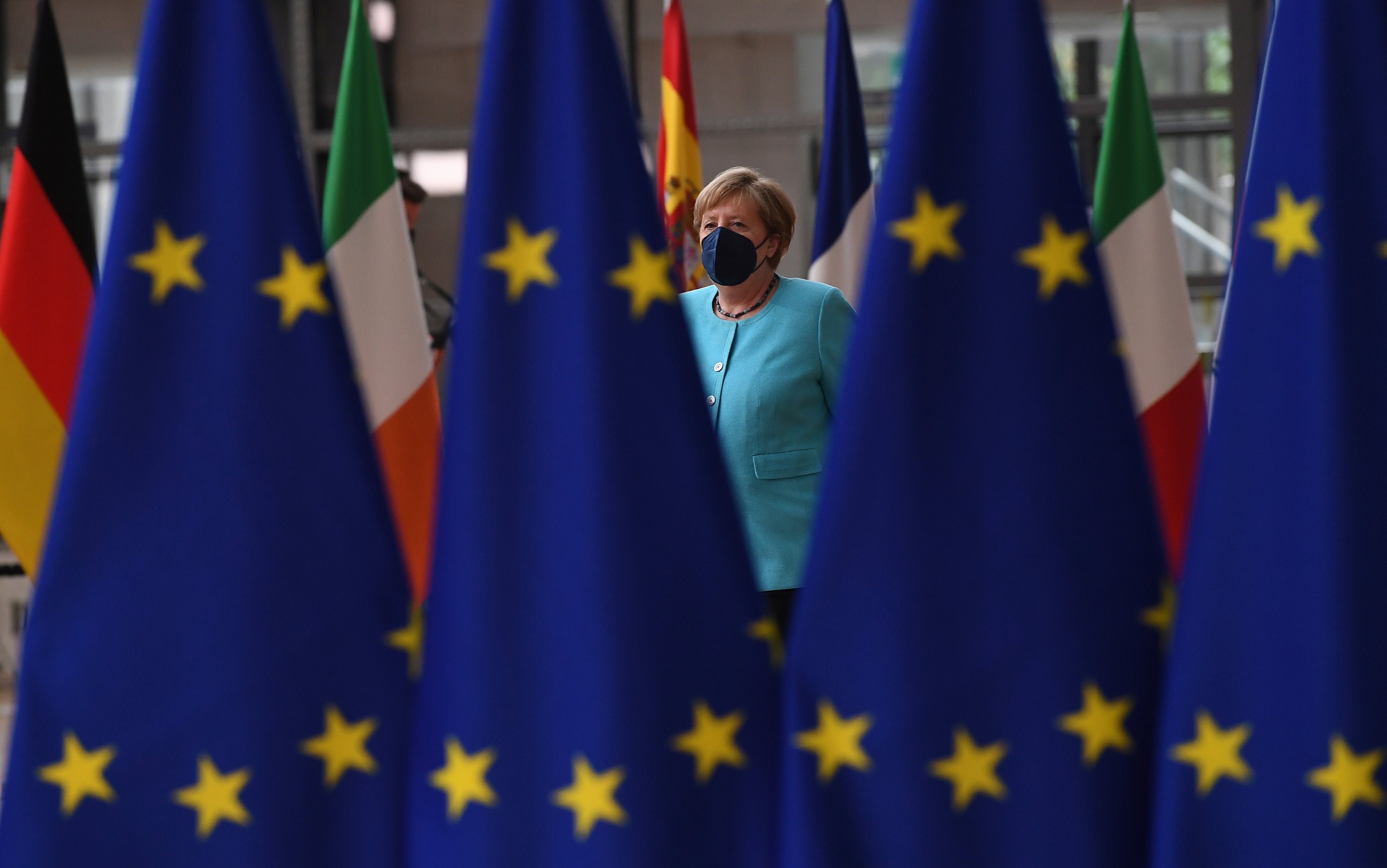Russia border countries in Europe cool on Putin talks plan
Countries bordering Russia are worried about a Franco-German plan to resume official meetings with President Vladimir Putin

Your support helps us to tell the story
From reproductive rights to climate change to Big Tech, The Independent is on the ground when the story is developing. Whether it's investigating the financials of Elon Musk's pro-Trump PAC or producing our latest documentary, 'The A Word', which shines a light on the American women fighting for reproductive rights, we know how important it is to parse out the facts from the messaging.
At such a critical moment in US history, we need reporters on the ground. Your donation allows us to keep sending journalists to speak to both sides of the story.
The Independent is trusted by Americans across the entire political spectrum. And unlike many other quality news outlets, we choose not to lock Americans out of our reporting and analysis with paywalls. We believe quality journalism should be available to everyone, paid for by those who can afford it.
Your support makes all the difference.Countries bordering Russia expressed concern Thursday about a Franco-German plan to resume official meetings with President Vladimir Putin likening the move to an attempt to talk a bear out of trying to steal honey.
The European Union is deeply divided in its approach to Moscow Russia is the EU’s biggest natural gas supplier, and plays a key role in a series of international conflicts and issues linked to Europe s strategic interests, including the Iran nuclear deal, and conflicts in Syria and Libya.
European heavyweight Germany has strong economic interests there, notably the NordStream 2 undersea pipeline project, and a number of countries, including France, are reluctant to continue waging a sanctions battle with Russia, including over the poisoning of opposition leader Alexei Navalny.
The EU is concerned that Putin is turning increasingly authoritarian and wants to distance himself from the West. Both the 27-nation trading bloc and the NATO military organization are struggling to bring Russia to the table. U.S. President Joe Biden’s meeting with Putin this month was a rare exception.
“We have to deal with Russia, but being very cautious about the real intentions of Putin’s regime,” Lithuanian President Gitanas Nauseda told reporters at an EU summit in Brussels, where the issue will be discussed. “So far, we don’t see any radical change in the pattern of behavior of Russia.”
“If without any positive changes in the behavior of Russia we start to engage it will send very uncertain and bad signals, for example to eastern partnership countries,” Nauseda said. “It seems to me like we try to engage a bear to keep a pot of honey safe.”
In Berlin, German Chancellor Angela Merkel told lawmakers that “the events of recent months — not just in Germany — have clearly shown that it’s not enough if we react to the multitude of Russian provocations in an uncoordinated way.”
“Instead, we have to create mechanisms to respond in a common and unified way to provocations” to what she described as “hybrid attacks by Russia.” That includes outreach to countries such as Ukraine, Belarus and the western Balkans, but also engaging Russia and Putin directly.
In Moscow, Kremlin spokesman Dmitry Peskov said Thursday that Putin supports the idea to restore “the mechanism of direct contacts between Brussels and Moscow.” “Putin has spoken about it many times,” Peskov said. “Both Brussels and Moscow really need this dialogue,” the spokesman added.
___
Frank Jordans in Berlin and Daria Litvinova in Moscow contributed to this report.